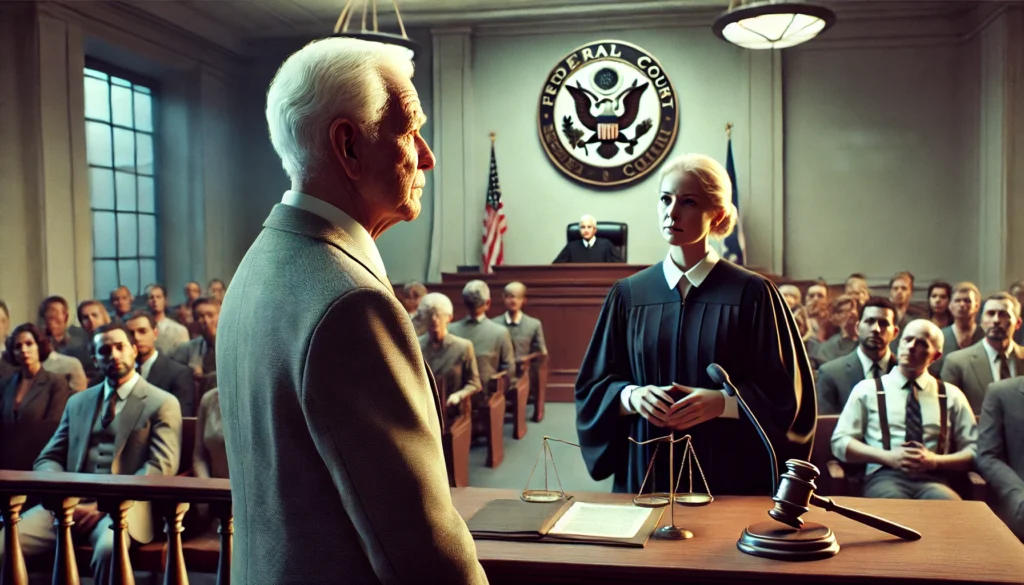In a stunning turn of events that has sent shockwaves through Chicago’s political establishment, former Alderman Edward Burke, long considered one of the city’s most influential power brokers, has been sentenced to just two years in federal prison for a series of corruption charges. The sentence, handed down by U.S. District Judge Virginia Kendall on Monday, falls far short of the recommendations made by prosecutors and federal guidelines, igniting a fierce debate about justice, privilege, and the enduring influence of political clout in the Windy City.
Burke, 80, was convicted on 13 out of 14 counts, including racketeering, bribery, and attempted extortion. The charges stemmed from a pattern of behavior in which Burke repeatedly used his position to shake down businesses seeking city permits and approvals. Prosecutors argued that the actual cost of Burke’s crimes amounted to $829,525, painting a picture of a seasoned political operator who had turned corruption into an art form.
The sentence has left many observers stunned and disappointed. Prosecutors had recommended a sentence of nearly five times what Burke received, while federal guidelines suggested a term of around 6.5 years. In addition to the prison sentence, Burke was fined $2 million – a sum that, while substantial, barely dents his estimated $30 million net worth.
Assistant U.S. Attorney Sarah Streicker did not mince words in her assessment of Burke’s actions, stating, “Clearly, these were not a one-time lapse in judgment. They were the exact opposite. … He operated as a seasoned professional.” This characterization of Burke as a calculating and repeat offender makes the leniency of his sentence all the more puzzling to many.
The Chicago Tribune’s editorial board expressed deep concern over the sentence, suggesting that Burke “surely won’t be incarcerated for close to the two years he got Monday for getting caught red-handed shaking down businesses needing city permits and approvals.” The board went further, criticizing the $2 million fine as potentially allowing a powerful man to “purchase years of freedom” simply because he had the resources to do so.
The case has reignited discussions about the corrosive effect of political corruption on public trust and the functioning of local government. Acting United States Attorney for the Northern District of Illinois, Morris Pasqual, emphasized this point, stating, “Corruption in the Chicago City Council tears at the fabric of a vital body of local government. When an alderman fails to discharge his duties with honesty and integrity, he betrays not only the citizens of Chicago but his fellow public officials who do their jobs the right way.”
Burke’s fall from grace marks the end of an era in Chicago politics. For decades, he was regarded as “arguably the most powerful politician in Chicago,” wielding influence that extended far beyond his role as alderman. His conviction and sentencing serve as a stark reminder of the ongoing challenges faced by the city in rooting out corruption and restoring faith in local government.
Critics of the sentence argue that it sends a dangerous message about accountability for those in positions of power. They contend that such leniency may embolden other corrupt officials, believing that the consequences of their actions will be minimal if they are caught.
Supporters of the sentence, however, point to Burke’s advanced age and the significant financial penalty as mitigating factors. They argue that the $2 million fine, combined with the irreparable damage to his reputation and legacy, constitute a meaningful punishment.
As Chicago grapples with the fallout from this high-profile case, questions linger about the effectiveness of the justice system in dealing with political corruption. The Burke saga underscores the ongoing need for vigilance, reform, and a commitment to ethical governance at all levels of city administration.
With Burke’s sentencing now behind them, Chicago residents and political observers alike are left to wonder what lasting impact this case will have on the city’s political culture. Will it serve as a turning point in the fight against corruption, or will it be seen as yet another example of a system that struggles to hold the powerful truly accountable? Only time will tell, but one thing is certain: the conversation about political integrity in Chicago is far from over.


